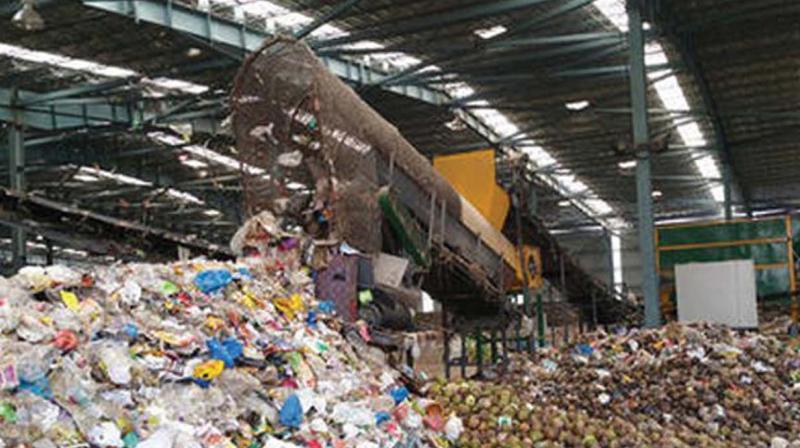KSSP to govt: Drop waste-to-energy plants

Kochi: The Kerala Sastra Sahitya Parishat has asked the government to drop the plans to set up waste-to-energy plants across the state. According to the KSSP, small decentralised plants and centralised facility to recycle plastic waste and minimising the quantity of garbage generated are the effective methods for solid waste management.
The 56th annual conference of KSSP held in Pathanamthitta observed that the Local Self-Government Department's order on June 11, 2018 to set up modern waste-to-energy plants (WTE) in the state was against the government's earlier policy favouring decentralised treatment system.
"We doubt whether the government has conducted any studies on the social, financial and environmental impact of the WTE plants and their feasibility. The proposal will ruin the growing civic sense on 'my waste is my responsibility' which will further worsen the waste management," observed the conference.
The government has not considered the experience of local bodies and Suchitwa Mission in waste processing at source. "Organic waste is the main source of carbon and other nutrients needed for soil. With the burning of organic garbage, nutrients and carbon will be depleted in soil. Waste treatment can't be considered as a method for energy production. Studies indicate that since the moist content in the waste generated in Kerala is high, the cost of power will be two to three-fold higher than that of the solar or thermal power," said A.P. Murali, KSSP state president.
It is also alleged that the government is trying to put the financial loss by implementing the infeasible project on local bodies and KSEBL.
The parishat also criticised the provision in the agreement that the local bodies have to give penalty to the firm if they fail to provide the necessary quantity of garbage.
"What the state needs is a people's participatory waste treatment system which has facility for plastic waste processing," added Murali.
Emission of high quantity of carbon dioxide when the huge quantity of organic waste is thermally processed also is not desirable during times of climate change, it has been observed.

